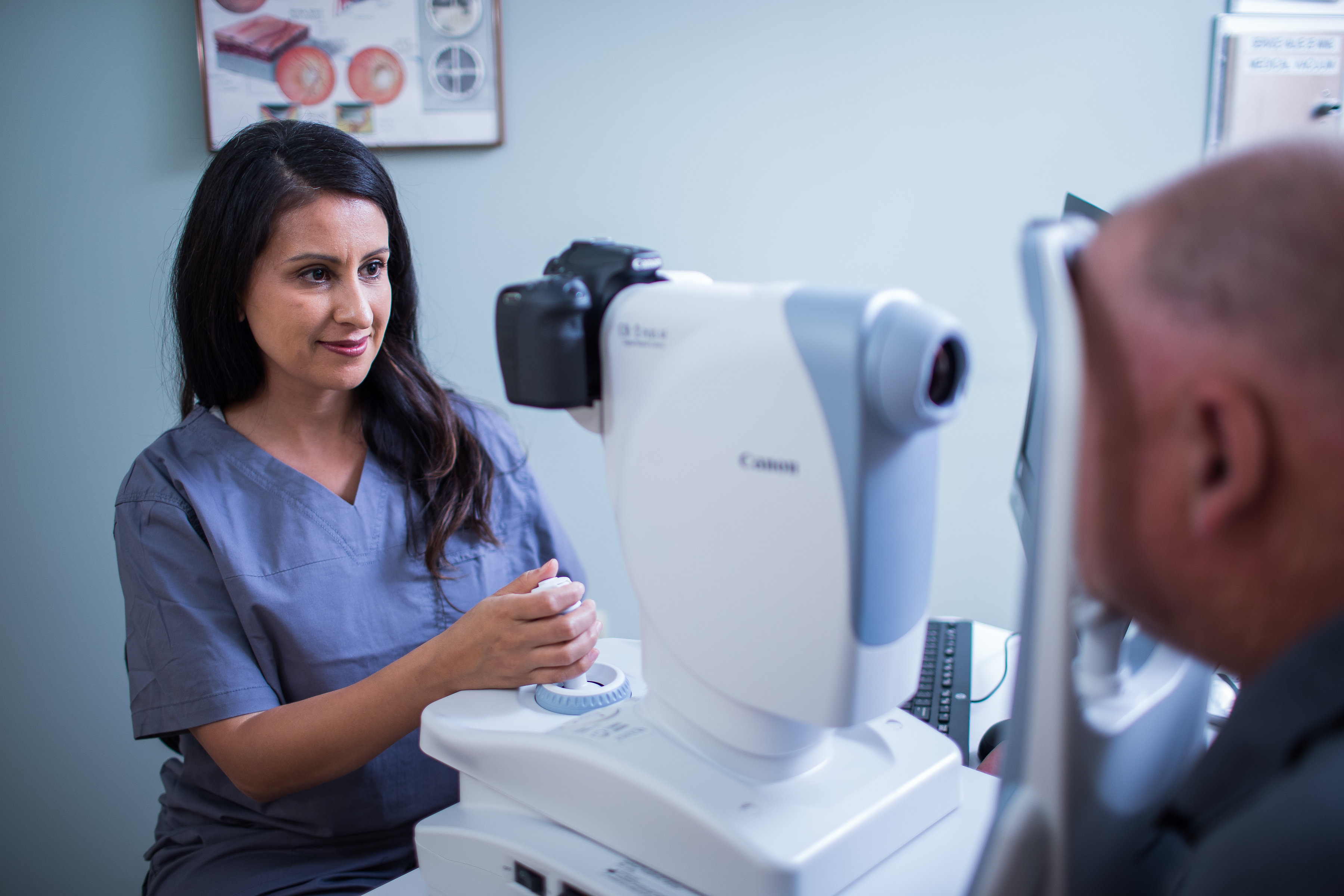Andalusia Ophthalmologist: Professional Eye Doctors in Your Location
Andalusia Ophthalmologist: Professional Eye Doctors in Your Location
Blog Article
Browsing the Labyrinth of Refractive Surgeries: Which Treatment Is Right for You?
In the world of refractive surgical procedures focused on dealing with vision, the range of offered treatments can usually appear like a labyrinth, each promising to use clarity and accuracy. As individuals contemplate beginning on the trip towards more clear vision, the sixty-four-thousand-dollar question occurs: which procedure is certainly one of the most appropriate option? Browsing this complex puzzle entails understanding the subtleties of different choices, taking into consideration personal factors that play a crucial function in decision-making, and discerning the differences in between preferred vision adjustment strategies. Among this intricacy lies the guarantee of tailored solutions that provide to specific needs, making the pursuit for the appropriate refractive surgical treatment a elaborate and highly personalized procedure. The search for the excellent treatment demands a careful assessment of several aspects, inevitably leading to the choice of a path that aligns completely with one's one-of-a-kind demands.
Recognizing Refractive Surgical Treatment Options

Elements to Think About Before Picking
Choosing the most appropriate refractive surgical treatment requires a comprehensive analysis of numerous elements to ensure optimum end results for each person. Prior to choosing a treatment, numerous key factors to consider must be taken right into account.
Patients with energetic way of lives or certain occupational demands might benefit much more from particular procedures. Individuals involved in call sports might choose for procedures like PRK over LASIK due to the reduced threat of flap issues.
Comparing Popular Vision Improvement Procedures
Taking into consideration the numerous aspects that affect the selection of a refractive surgical procedure, it is vital to contrast prominent vision improvement procedures to determine one of the most appropriate option for individual requirements. Two extensively recognized treatments are LASIK (Laser-Assisted in Situ Keratomileusis) and PRK (Photorefractive Keratectomy)
It gives fast recuperation and marginal discomfort, with a lot of people experiencing improved vision nearly immediately. read what he said The recovery duration is much longer compared to LASIK, PRK is a better option for individuals with slim corneas or specific corneal abnormalities.
When contrasting these treatments, aspects like corneal thickness, eye health, and preferred healing time must be very carefully considered. Consulting with a knowledgeable eye doctor is necessary to establish one of the most ideal treatment based on a person's specific needs and eye health condition.
Custom-made Treatments for Individual Requirements
Customizing refractive surgical procedures to fulfill distinct client needs is essential in achieving optimum aesthetic outcomes and complete satisfaction rates. Customized therapies think about individual factors such as prescription toughness, corneal thickness, pupil size, and lifestyle factors to consider to determine one of the most ideal procedure for each and every client. Advanced innovations like wavefront-optimized or wavefront-guided treatments make it possible for doctors to resolve higher-order aberrations and improve aesthetic high quality beyond what standard procedures can supply.

Finding the Right Doctor for You
When looking for a doctor for refractive surgical treatment, it is crucial to focus on know-how and experience in the area. The doctor you choose will play a substantial role in the success of your procedure and the click here for more info end result of your vision. To find the best cosmetic surgeon for you, consider aspects such as their qualifications, field of expertise in refractive surgeries, and the variety of treatments they have actually executed.
Beginning by researching prospective surgeons and their qualifications. Seek ophthalmologists who are board-certified and have specific training in refractive surgery. Additionally, testimonial individual testimonials and before-and-after images to evaluate the doctor's track document of successful outcomes.
During examinations, ask concerning the specialist's experience with the particular procedure you are thinking about. Inquire regarding their issue prices, success rates, and how they manage any type of prospective threats related to the surgical treatment. A skilled and experienced doctor will certainly not just have the technological knowledge yet likewise the capability to customize the therapy to your private requirements, making certain the ideal possible results for your vision correction trip.
Final Thought
To conclude, when thinking about refractive surgical treatments, it is crucial to understand the offered options, elements to think about, and the distinctions in between preferred treatments. Customized treatments tailored to private demands are important for achieving optimum results. Locating a skilled specialist that can assist you with the puzzle of selections is paramount in ensuring a successful vision correction treatment. Select intelligently based on comprehensive research study and appointment with a specialist in the area.
In the world of refractive surgeries intended at correcting vision, the range of available treatments can often appear like a labyrinth, each guaranteeing to supply quality and precision. One usual treatment is LASIK (Laser-Assisted in Situ Keratomileusis), where a laser improves the cornea to fix refractive mistakes such as astigmatism, nearsightedness, and farsightedness. Custom-made therapies take right into account specific factors such our website as prescription stamina, corneal thickness, pupil dimension, and way of life considerations to determine the most ideal procedure for each patient. To discover the right specialist for you, consider aspects such as their certifications, expertise in refractive surgeries, and the number of procedures they have actually carried out.
In final thought, when taking into consideration refractive surgical treatments, it is crucial to recognize the available choices, elements to think about, and the differences between popular treatments. - neurologist Andalusia
Report this page